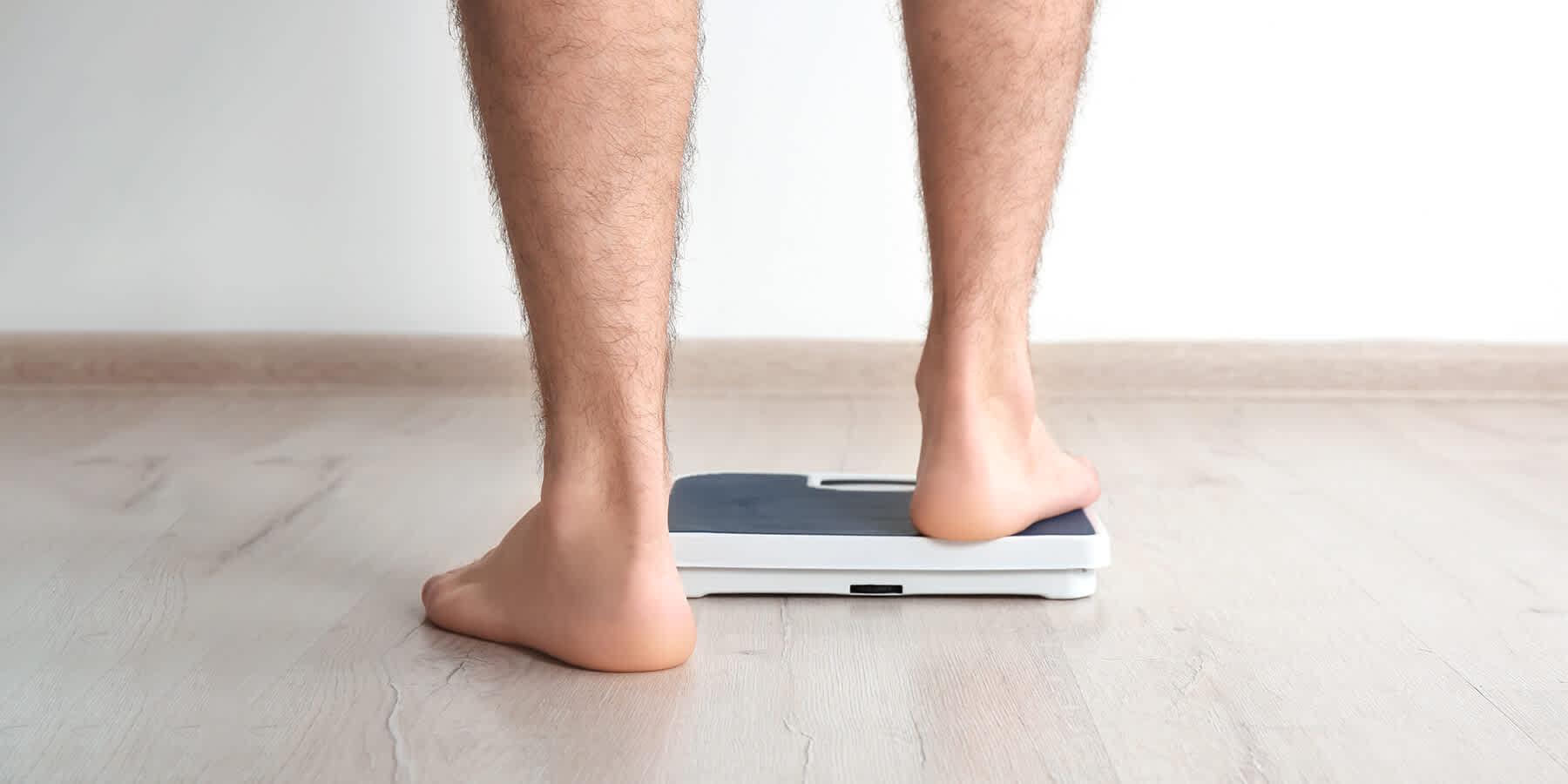
How to maintain weight after weight loss
Written on May 22, 2023 by Lori Mulligan, MPH. To give you technically accurate, evidence-based information, content published on the Everlywell blog is reviewed by credentialed professionals with expertise in medical and bioscience fields.
Table of contents
- Weight loss maintenance strategies
- Summary
- Everlywell can help with weight maintenance
- Related content
While losing weight is difficult for many of us, it is even more challenging to keep the weight off. Most people who lose a large amount of weight regain it within two to three years.
Keeping extra weight off takes effort and commitment, just as losing weight does. Weight loss and maintenance require a combination of changes in diet, eating habits, and exercise. In extreme circumstances, you may consider bariatric surgery. Read on to learn more about how to maintain weight after weight loss.
Weight loss maintenance strategies
You may have heard the widely quoted statistic that 95% of people who lose weight on a diet will regain it within a few years—or even months.
While there isn’t much hard evidence to support that claim, many weight-loss plans fail in the long term.
Often that’s simply because diets that are too restrictive are very hard to maintain over time. However, that doesn’t mean your weight loss attempts are doomed to failure.
Since it was established in 1994, the National Weight Control Registry (NWCR) in the United States has tracked over 10,000 individuals who have lost significant amounts of weight and kept it off for long periods of time.
The study found that participants who successfully maintained their weight loss shared some common strategies. Whatever diet you use to lose weight in the first place, adopting these habits may help you to keep it off [1]:
- Keep a food log. Recording what you eat every day helps keep you accountable and motivated.
- Eat breakfast every day. Most commonly in the study, it’s cereal and fruit. Eating breakfast boosts metabolism and staves off hunger later in the day.
- Eat more fiber and less unhealthy fat than the typical American diet.
- Regularly check the scale. Weighing yourself weekly may help you to detect any small gains in weight, enabling you to promptly take corrective action before the problem escalates.
- Watch less television. Cutting back on the time spent sitting in front of a screen can be a key part of adopting a more active lifestyle and preventing weight gain.
Johns Hopkins offers some additional strategies for keeping off weight, such as [2]:
- Use support systems that are effective during weight loss. They can also contribute to weight maintenance. According to the NWCR, 55% of registry participants used some type of program to achieve their weight.
- Add 200 calories of healthy, low-fat food to your daily intake for a week at a time to monitor your weight status.
- Diet and exercise to lose and maintain weight. A total of 94% of the registrants in the NWCR increased their physical activity.
- Increase intake of healthy calories if weight loss continues until the right balance of calories for maintaining the desired weight has been determined.
- Record your food intake and exercise to help you adjust to achieve the right level of food and exercise. A nutritionist can help with this.
According to the Centers for Disease Control and Prevention (CDC), the following helps maintain weight loss:
Create an eating plan that you can follow for life. It just needs two key ingredients: It’s based on healthy food, and you can keep doing it long term. With that in mind, you may need to try different things to figure out what works best for you day to day.
Cut back on sugar and eat more protein to stay fuller longer.
Focus on filling up with extra fruits and vegetables, which leaves less room for unhealthy food.
Be mindful of what you are eating and whether it fits your overall food plan. Don’t be random or chaotic in what you choose to eat. The details will depend on what you like and what fits best with your lifestyle.
Talk to a registered dietitian or diabetes educator (your doctor can give you a referral).[3]
Summary
According to the National Heart, Lung and Blood Institute (NHLBI), the likelihood of weight-loss maintenance is enhanced by a program consisting of dietary therapy, physical activity, and behavior therapy, which should be continued indefinitely.
Drug therapy also can be used. However, drug safety and efficacy beyond one year of total treatment have not been established.
A weight maintenance program should be a priority after the initial six months of weight-loss therapy.[4]
Everlywell can help with weight maintenance
Everlywell offers support for weight management via a weight loss telehealth option, pairing prescriptions for GLP-1 with regular clinician care, lab testing, and support for related conditions. (Age 18+)
Because weight and diabetes are so interconnected, we offer an HbA1c test that allows you to monitor your blood sugar to ensure you maintain your blood sugar and weight at the right levels. This is an easy way to measure how well you have been maintaining your blood sugar levels for the past 90 days.
Related content
How much to walk for weight loss
Obesity and high cholesterol: what's the connection?
Mindfulness for weight loss and management: how to tune into your body and break old habits
References
- Smith M, Segal J, and Robinson M. How to lose weight and keep it off. Helpguide.org. https://www.helpguide.org/articles/diets/how-to-lose-weight-and-keep-it-off.htm Accessed on May 14, 2023.
- Maintaining weight loss. Johns Hopkins. 2023. https://www.hopkinsmedicine.org/health/wellness-and-prevention/maintaining-weight-loss#:~:text=Physical%20activity%20plays%20a%20vital,recommended%20for%20maintaining%20weight%20loss.Accessed on May 13, 2023.
- Healthy weight. CDC. https://www.cdc.gov/diabetes/managing/healthy-weight.html#:~:text=Eat%20higher%2Dprotein%2C%20lower%2D,fat%20storage%2C%20and%20weight%20gain.Accessed on May 14, 2023.
- Aim for a healthy weight. NHLBI/NIH. https://www.nhlbi.nih.gov/health/educational/lose_wt/recommen.htm. Accessed on May 15, 2023.
